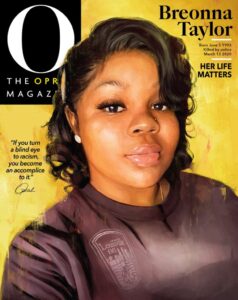
With the second Grand Ole Party (GOP) debate having occurred on Sept. 16th, and 22 declared hopefuls competing for the presidential nomination, it is clear national election season is well underway, and because of that, it is time to have a talk about Hillary Rodham Clinton’s relationship with Mills students.
Since the beginning of the season, the GOP have taken this time to attack Clinton who they perceive as their greatest opponent, while ignoring the second front runner from the political left, Senator Bernie Sanders (I-Vt.). Yet to win the nomination, Clinton would have to appeal to the traditional base of the Democratic Party: youth, women, people of color and the LGBTQ+ community.
The GOP’s greatest fear of Clinton is their belief that she will garner the “woman vote.” For years the media has painted Clinton as a champion for women, but now she is facing criticism from both sides of the aisle for pandering only to white women.
This criticism was reiterated by Mills senior Patricia Perez who called Clinton a white feminist. Perez explained that white feminism is the lack of intersectionality within feminists like Clinton – a consequence of the cultural notion of being “color blind.” This absence of acknowledging privileged white women over other racial and ethnic groups has become a heated topic in this election.
RealClearPolitics online shows Clinton is leading the polls at 47 percent, to Sanders 27 percent. According to the Washington Post, Clinton is facing worse poll ratings than during the 2008 campaign. They say this could be because 7 out of 10 Americans view politicians, especially career politicians such as Clinton and Jeb Bush, to be untrustworthy. Millennials often cite Clinton’s switch from anti-gay marriage to pro-gay marriage in the 2008 election as a prime example of her altering her platform to garner votes, thereby making her untrustworthy.
These beliefs are demonstrated by sophomore Jasmine Marani’s emphasis of Clinton’s history of flip-flopping on issues. “I believe that Clinton is opportunistic, and chooses what views to support as a matter of political convenience,” Marani said in an email. “Ultimately, yes, she does support social reform that is helpful to obtaining equality. However, I think her views follow a trend of obtaining votes and popularity. These might be her views for the moment, but might change as the political climate changes. She is a career politician.”
Clinton’s involvement abroad has become a contentious issue among millennials who increasingly view American involvement overseas as inappropriate, and a large part of why she is declining in the polls.
Mills student Tess Imhof called Clinton an “imperialist,” when describing the continued involvement in American affairs overseas, specifically naming the Israeli conflict.
Mara Cakir also referenced Clinton’s involvement in Israel as an issue. The continual presence of Americans in the Middle East, and questionable behavior like Benghazi, are causing increased wariness amongst some Mills students. Cakir’s views relayed the concerns that Imhof and other millennials seem to be expressing.
While these views are not representative of all Mills students, it is safe to assume that there are many on this campus that feel Clinton cannot be trusted as she too often flip flops on issues. However, Mills students aren’t just wary of Clinton, but it seems the whole system.
This sentiment was echoed by Imhof when asked whether she had been following the presidential campaign: “I haven’t been following because I feel like our electoral system is a means of distraction.” The students of Mills are not alone in their anger surrounding the political game; the Washington Post claims that 6 out of 10 Americans believe the American political and electoral systems are broken.
This sort of frustration and distrust will be a huge hindrance to Clinton, and any future candidates, as growing number of Americans become fed up with a system viewed as pointless and damaged. While Mills students seem to be fed up with the system, it’s obvious that they are especially tired of Clinton.
What is often ignored about Clinton, while definitely a career politician, is how alike she is to most Americans. Most people are not like Mills; they are moderate. And as moderates become more leftist, politicians like Clinton adjust. And in this way, groups that Mills often support may benefit. Do I agree with Clinton? Only half of the time. But as a moderate, I think she has a better shot than Sanders at appealing to the middle of the political spectrum and creating less gridlock in congress. And I don’t know about any of you, but I am tired of political gridlock.

